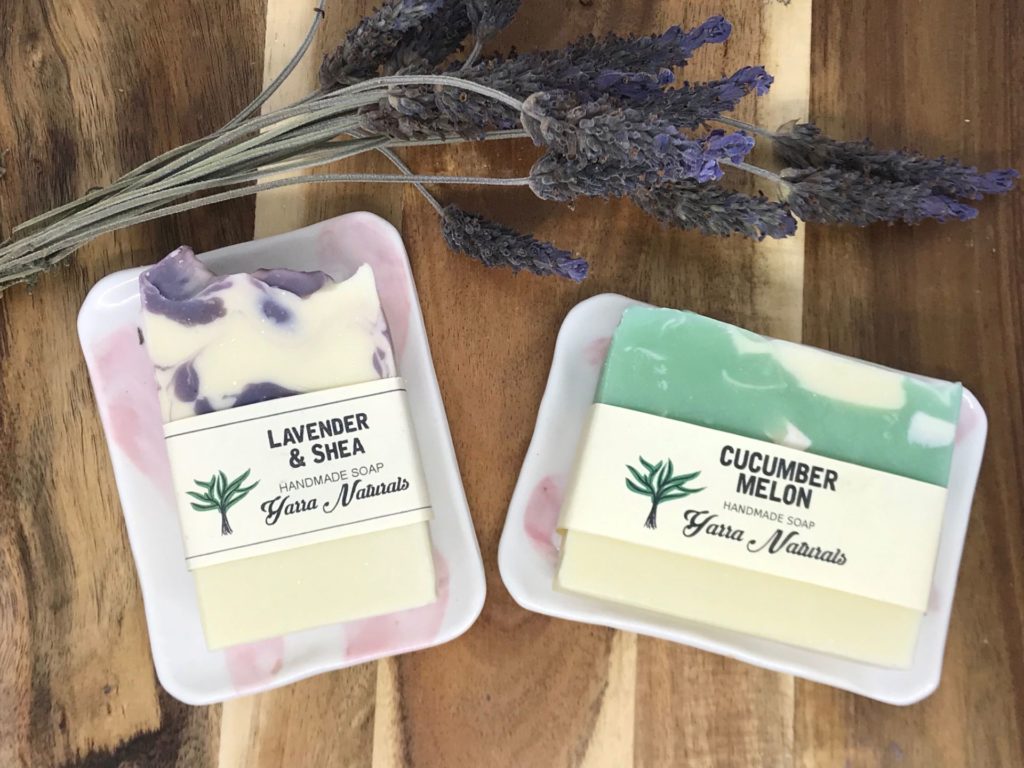What’s the deal with soap?

Soap has been in the business of cleaning our skin for thousands of years. Early handmade soap was crude and not nearly as cosmetically pretty as today’s standards. Nowadays soap makers have it very good with access to ingredients such as exotic oils, essential oils, and body butters that were only dreamed of before.
All soap does the same job but not every soap is made the same way. An “el cheapo” commercially made body soap will clean your skin but it is usually packed full of chemicals to do the job of cleaning, lathering and bubbling. Handmade soap tends to have natural ingredients.
Why can’t we just use water or something gritty to scrub away the day’s build-up of grease and grime? You could, but soap works much better.
How does soap clean?
Your skin naturally secretes oils, and this is great for healthy skin. Unfortunately, dirt gets trapped in the oil on your skin and water alone is unable to break down the oil and wash away the dirt (water and oil don’t mix).
Soap molecules have two sides. One side binds to water and the other binds to oil. This allows the soap to attach itself to the dirty oils from your skin and wash them away. If soap didn’t attach to water, then it would get stuck on your skin just like the oil and dirt. If it didn’t attach to oil, then it wouldn’t clean. So, both parts are important in cleaning your skin.
What is soap?
At Yarra Naturals, we use a process called “cold process” to make our body soap. In a nutshell, we combine oils, water and lye (an alkali also called sodium hydroxide). Many people ask if you could make soap without using lye and the answer plain and simple is no. Without lye, you can’t make soap. Early soap, thousands of years ago also used lye made from potash (wood that has been burnt to ash and is highly alkaline).
By combining the oils, water and lye a reaction takes place called saponification with the end result being soap. The soap is then cured for 4-6 weeks to harden and neutralize. After the 4 weeks, there are no traces of lye.
Of course, we soap makers tend to get a bit creative and take it a bit further by adding different types of oils such as olive oil (nourishing and helps produce a nice hard bar of soap, coconut oil (cleansing and combined with certain other oils makes for excellent lather), sweet almond oil (nourishing and excellent for dry skin) and then depending on the soap we might add some clay for exfoliation, essential oils for therapeutic benefits or scent, etc. The possibilities are endless and making a bar of soap is like a painter choosing their colours or a chef choosing their ingredients to make the perfect meal.
SoapwwAnd that is soap in a nutshell! Hope you enjoyed learning about how we make soap here at Yarra Naturals. If you would like to find out more about the process of soap making I recommend the 4 part tutorial series by Soap Queen TV or if you love all things soap head to our website at www.yarranaturals.com.au.